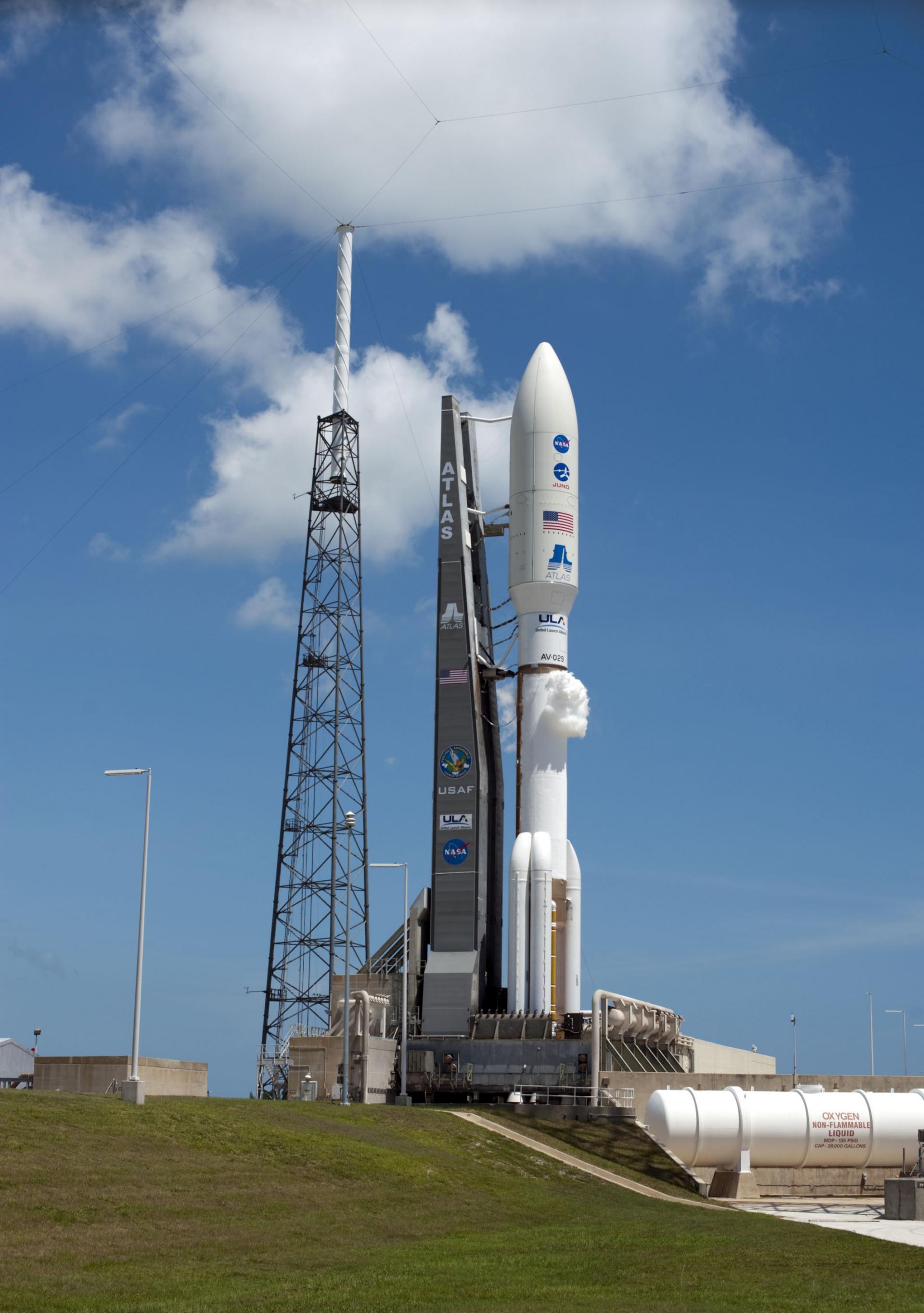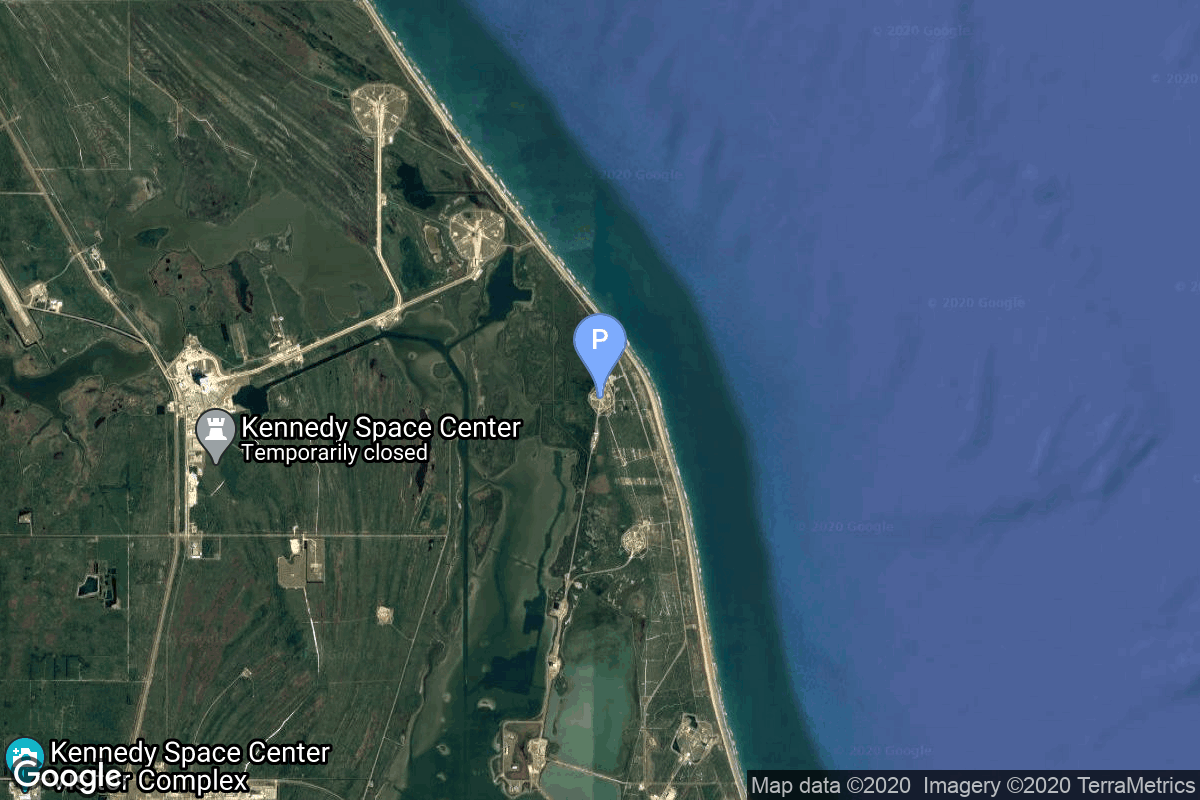
Atlas V 551 | ViaSat-3 F2 (ViaSat-3 EMEA)
Programma
Pad

Cape Canaveral Space Force Station (CCSFS) is an installation of the United States Space Force's Space Launch Delta 45, located on Cape Canaveral in Brevard County, Florida.
Rocket
![[AUTO] Atlas V 551 - image](https://thespacedevs-dev.nyc3.digitaloceanspaces.com/media/images/atlas2520v2520551_image_20190224012316.jpeg)
Atlas V is an expendable launch system in the Atlas rocket family. It was formerly operated by Lockheed Martin and is now operated by United Launch Alliance (ULA), a joint venture with Boeing. Each Atlas V rocket uses a Russian-built RD-180 engine burning kerosene and liquid oxygen to power its first stage and an American-built RL10 engine burning liquid hydrogen and liquid oxygen to power its Centaur upper stage. The RD-180 engines are provided by RD Amross, while Aerojet Rocketdyne provides both the RL10 engines and the strap-on boosters used in some configurations. The standard payload fairing sizes are 4 or 5 meters in diameter and of various lengths. Fairings sizes as large as 7.2 m in diameter and up to 32.3 m in length have been considered. The rocket is assembled in Decatur, Alabama and Harlingen, Texas.
Full Name: Atlas V 551
Maiden Flight: 2006-01-19
Total Launch Count: 17
Successful Launches: 17
Failed Launches: 0
Mission
Mission Name: ViaSat-3 F2 (ViaSat-3 EMEA)
Type: Communications
Description: The ViaSat-3 is a series of three Ka-band satellites is expected to provide vastly superior capabilities in terms of service speed and flexibility for a satellite platform. Each ViaSat-3 class satellite is expected to deliver more than 1-Terabit per second of network capacity, and to leverage high levels of flexibility to dynamically direct capacity to where customers are located.
Orbit: Geostationary Transfer Orbit
Updates

Cosmic_Penguin
2025-05-01T19:26:00ZNET late summer.

Cosmic_Penguin
2024-10-10T17:23:00ZNET 1H 2025.

Cosmic_Penguin
2025-03-08T03:07:00ZNET summer 2025.

Cosmic_Penguin
2025-09-04T12:35:00ZNET second half of October 2025.

Cosmic_Penguin
2025-08-06T00:48:00ZNET early Q4.

Cosmic_Penguin
2022-11-11T00:54:03ZNET summer 2023

Cosmic_Penguin
2023-02-08T02:49:46ZNET September 2023

Cosmic_Penguin
2023-08-05T02:09:32ZNET late 2023, to be determined.


Cosmic_Penguin
2024-02-06T23:55:58ZNET Q4 2024 (requires swapping of satellites with one originally planned as ViaSat-3 APAC, else NET 1H 2025).